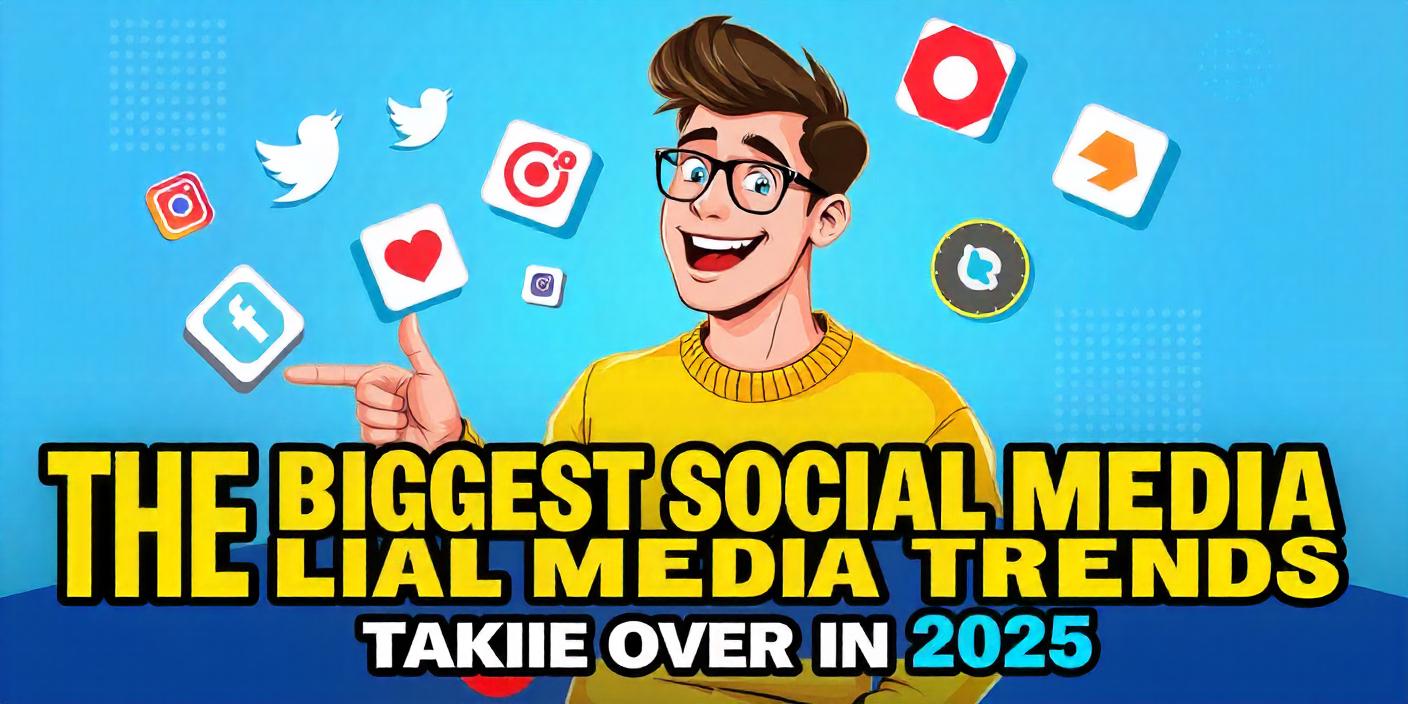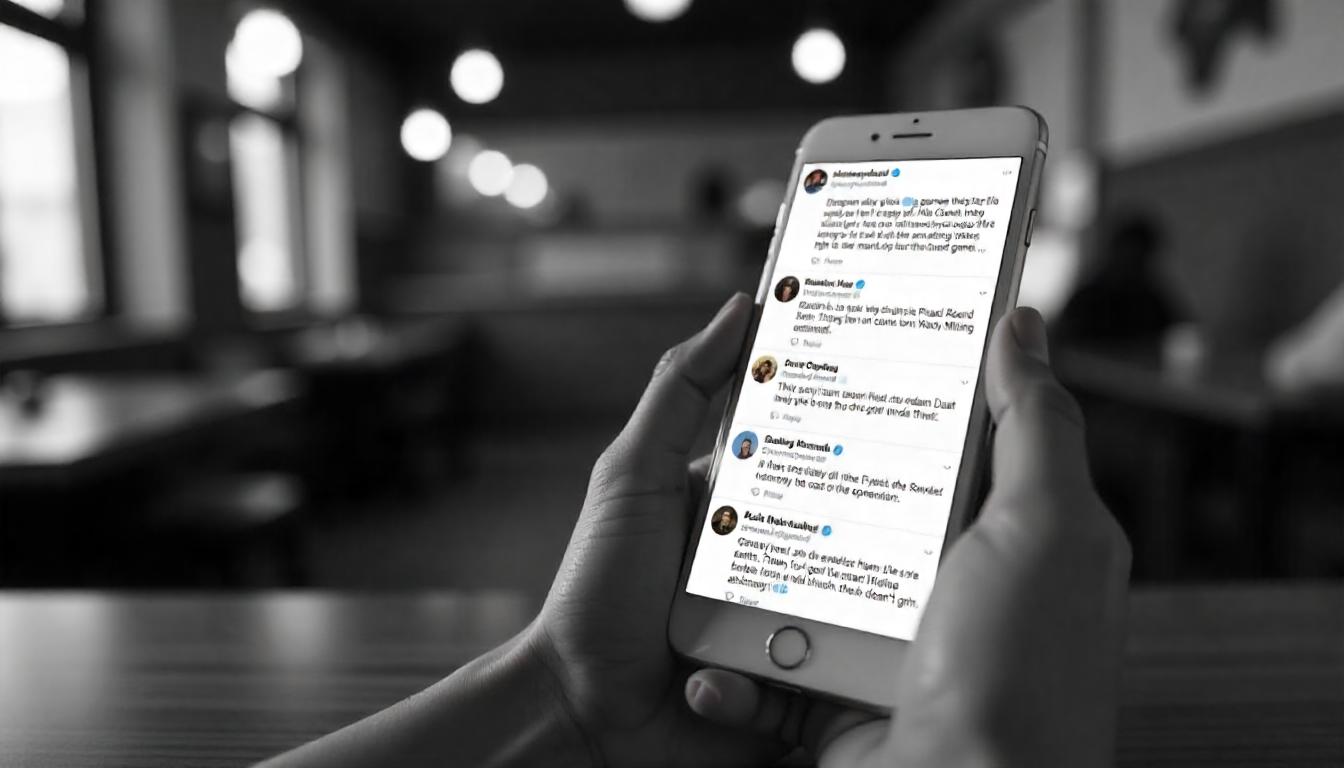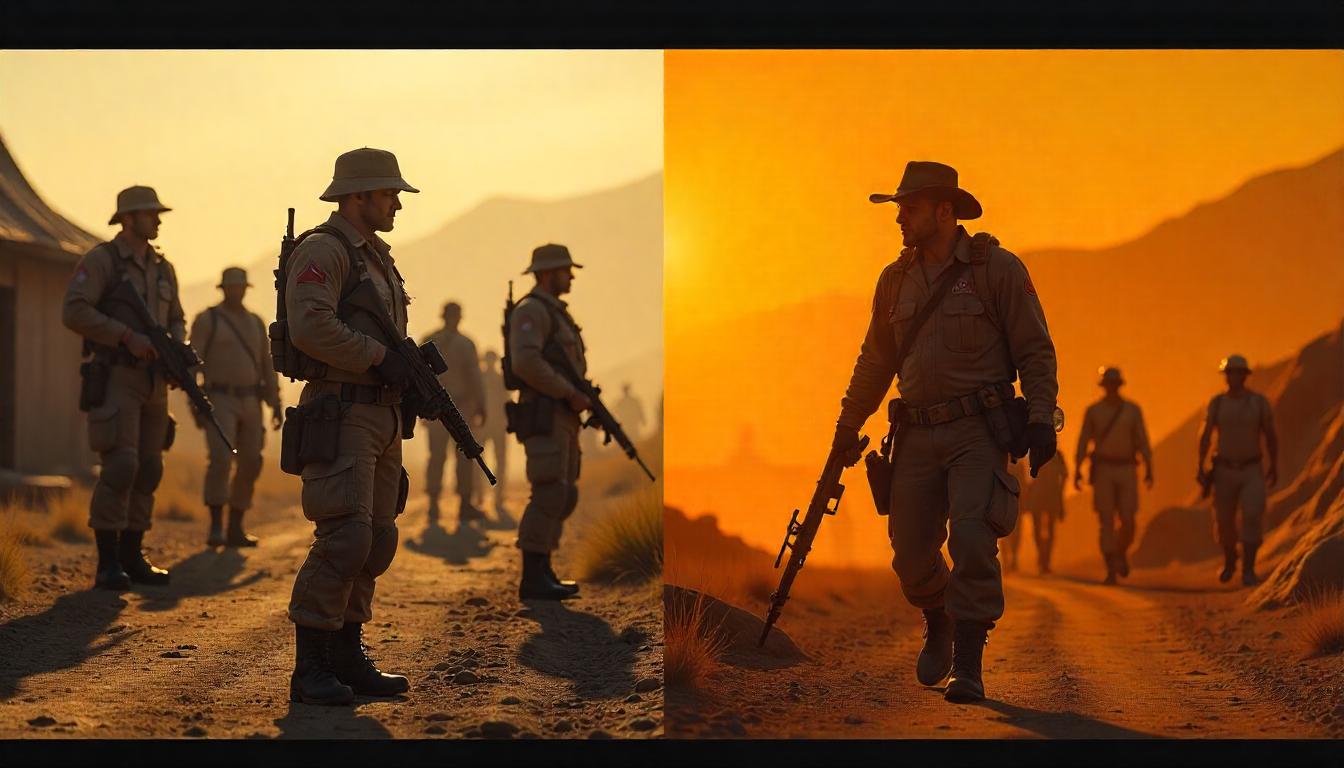Social media is undergoing a massive transformation in 2025, driven by new technologies, changing user behaviors, and the constant evolution of online culture. From the rise of fresh platforms challenging industry giants to the dominance of meme culture and the impact of short-form content on attention spans, these trends will shape the way people connect, share, and consume content.
As artificial intelligence, augmented reality, and user-generated content become more sophisticated, social media platforms must adapt to keep audiences engaged. This year, we are witnessing an even greater demand for personalized experiences, data privacy, and immersive interactions. Here is a deep dive into the biggest social media trends defining 2025.
The Rise of New Platforms and the Decline of Social Media Giants
Every few years, a new platform disrupts the industry, offering fresh experiences while older social media giants struggle to keep up. In 2025, the digital landscape is evolving faster than ever, with emerging platforms leveraging artificial intelligence, blockchain technology, and immersive digital spaces to attract users.
Which Platforms Are Rising?
1. AI-Driven Content Platforms
Artificial intelligence is at the heart of new social platforms. AI-driven networks can curate highly personalized feeds, generate engaging content on demand, and even act as virtual assistants, helping users navigate their social interactions effortlessly.
2. Decentralized Social Media Networks
Privacy and data ownership are becoming major concerns, leading to the rise of decentralized social platforms. These networks operate on blockchain technology, allowing users to have complete control over their content, data, and monetization. Unlike traditional social media platforms, which rely on algorithms controlled by corporations, decentralized platforms prioritize transparency and user autonomy.
3. Virtual and Augmented Reality Social Spaces
With advancements in AR and VR, new social media platforms are offering immersive digital environments where users can interact through avatars. These platforms blend social networking with gaming, workspaces, and entertainment, creating highly interactive experiences beyond just scrolling through a feed.
Which Platforms Are Struggling?
Not every platform can keep up with the changing digital landscape. Some of the biggest social media giants are experiencing declines due to outdated business models, algorithm fatigue, and changing user preferences.
1. Traditional Social Media Giants Losing Engagement
Platforms that rely too heavily on traditional advertising models and fail to innovate with AI and immersive technologies are seeing declines in user engagement. As audiences seek more personalized, ad-free experiences, older networks that prioritize corporate monetization over user satisfaction are losing ground.
2. Platforms Failing to Adapt to AI and Short-Form Content Trends
Social media platforms that do not optimize their algorithms to cater to AI-generated content and short-form videos are struggling to maintain relevance. The competition for user attention is fiercer than ever, and platforms that fail to deliver engaging, fast-paced content are seeing reduced time spent on their apps.
3. Over-Monetized Networks Driving Users Away
Some platforms are overloading their user experience with ads, premium subscriptions, and paywalls, pushing users to explore alternatives that offer more organic engagement and fewer interruptions. The demand for ad-free, user-driven spaces is growing, and platforms that do not balance monetization with a seamless experience are at risk of losing users.
Meme Culture and Internet Challenges: The Digital Language of 2025
Memes have long been a staple of internet culture, but in 2025, they are more powerful than ever. Memes serve as a universal language for entertainment, political commentary, brand marketing, and even activism. Similarly, internet challenges continue to go viral, creating waves of engagement across platforms.
How Meme Culture is Changing Social Media
1. AI-Generated Memes at Lightning Speed
Artificial intelligence is now capable of generating personalized memes in real time, allowing users to create and share viral content effortlessly. AI-powered meme creators can analyze trending topics and generate text, images, and videos tailored to individual preferences, making meme culture more dynamic than ever.
2. Brands and Businesses Embracing Meme Marketing
Companies are leveraging memes as a key marketing strategy, using humor and cultural references to connect with younger audiences. Instead of traditional ads, brands are using meme-based content to increase engagement, foster brand loyalty, and humanize their messaging.
3. Memes as a Tool for Social and Political Movements
Memes are no longer just for entertainment—they are now used as a tool for activism and awareness campaigns. Whether addressing political issues, social justice causes, or major global events, meme culture has become a powerful way to spread messages quickly and effectively.
The Evolution of Internet Challenges
1. Highly Interactive and Gamified Challenges
Internet challenges are no longer just simple dance trends or reaction videos. In 2025, challenges incorporate AR filters, AI-generated effects, and gamification elements, making them more interactive and engaging.
2. AI-Powered Personalization of Challenges
Some challenges now use AI to tailor experiences for individual users. For example, a fitness challenge might generate unique workout routines based on a person’s fitness level, while an art challenge could suggest custom creative prompts based on the user’s interests.
3. Safety Concerns and Platform Regulations
As internet challenges grow in popularity, concerns over safety remain a priority. Platforms are implementing stricter guidelines to prevent harmful trends while encouraging positive and creative challenges that foster community engagement.
The Impact of Short-Form Content on Attention Spans
Short-form video has dominated social media in recent years, and its influence continues to grow in 2025. With platforms like TikTok, Instagram Reels, and YouTube Shorts leading the charge, the way people consume content is shifting dramatically.
The Growing Popularity of Ultra-Short Content
1. AI-Generated Micro-Videos
AI is now capable of creating high-quality, hyper-personalized short videos within seconds. Users can generate content automatically based on their interests, making it easier than ever to produce viral videos without extensive editing skills.
2. Social Media Algorithms Rewarding Quick Engagement
Platforms continue to prioritize content that captures attention within the first few seconds. This has led to a surge in fast-paced storytelling, rapid editing, and visually stimulating content designed to keep viewers hooked.
3. The Rise of Silent and Captioned Content
With more users consuming content without sound, videos with automatic captions, on-screen text, and visual storytelling are becoming the norm. This trend ensures accessibility while catering to audiences who prefer silent scrolling.
The Downside: Declining Attention Spans and Scroll Fatigue
While short-form content is highly engaging, it is also leading to changes in user behavior that may have long-term effects.
1. Reduced Focus on Long-Form and In-Depth Content
As people get accustomed to consuming bite-sized information, long-form content such as blog articles, podcasts, and documentaries may struggle to retain audience attention.
2. Scroll Fatigue and Content Overload
With endless streams of content available at any moment, some users are experiencing “scroll fatigue,” where they feel overwhelmed by the constant flow of videos and information.
3. The Need for Digital Detox and Mindful Consumption
As attention spans decline, more people are seeking ways to limit screen time and engage with content more mindfully. Platforms are beginning to introduce features that encourage healthier consumption habits, such as screen time reminders and content curation tools.
Final Thoughts on Social Media in 2025
The social media landscape in 2025 is driven by innovation, rapid content creation, and shifting user expectations. New platforms are challenging traditional giants, meme culture is shaping online interactions, and short-form video is redefining digital engagement.
As users demand more personalized, immersive, and privacy-focused experiences, the future of social media will depend on platforms’ ability to balance entertainment, authenticity, and ethical content moderation. Whether you are a content creator, marketer, or casual user, understanding these trends will help you stay ahead in the ever-changing world of digital communication.






Leave a Reply